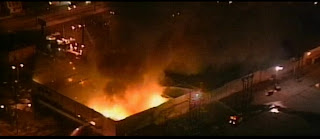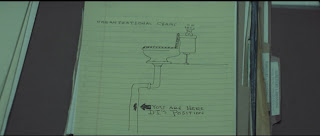One wonders what exactly Manhattan prosecutors were hoping to accomplish with the just completed tax fraud case against the Trump Organization, which will go to the jury by Monday, confronted with lots of numbers to digest. We are reminded of the Robert Mueller investigation, when Paul Manafort pleaded guilty to conspiracy and tax fraud in a plea deal in which he also agreed to “cooperate” with investigators against Donald Trump. Were they really expecting him to “turn” on Trump? Why would he? Word had likely reached him that Trump would pardon him if he kept his mouth shut, and not surprisingly he frustrated investigators by instead playing “ignorant” to any machinations the Trump campaign may have had with the Russians who had “dirt” they could use against Hillary Clinton.
In the New York City tax fraud case against the Trump Organization, CFO Allen Weisselberg confessed the following according, to CBS News: “Weisselberg said Donald Trump, or at times Eric Trump or Donald Trump Jr., signed checks to pay up to $100,000 for private school tuition for Weisselberg's grandchildren. Weisselberg said he then instructed the company's controller to deduct the $100,000 from his salary, allowing him to report a smaller income.” Weisselberg also admitted to other fraud schemes—such as the company paying the rent for his Manhattan apartment, and paying tax-free fringe benefits for other company executives—over a 15-year period, reaping himself financial gain in avoiding paying nearly $2 million in taxes.
But to be honest, after all the effort to persuade him to “turn,” this frankly seems a rather “paltry” deal in retrospect. In exchange for a light sentence of only five months in prison, Weisselberg was expected to give damning evidence against Trump himself—or at least that was the expectation of the media. But apparently he promised no such thing, and in court while he “tearfully” confessed his own guilt, he was adamant that Trump himself knew nothing of these fraud schemes. Weisselberg admitted that he was still on the company payroll and expected to receive a $500,000 bonus—which, we suspect, is the price for his silence, or perjury.
Another witness, Trump Organization controller Jeffrey McConney, also apparently reneged on “teased” testimony against Trump, and Judge Juan Merchan ruled him a “hostile witness” for the prosecution when, as CBS News reported, “McConney appeared to be avoiding giving meaningful answers to even basic questions. Judge Juan Merchan said McConney had ‘a hard time giving very credible answers’ to prosecutors' questions, while ‘it is pretty clear to the average observer that he is very helpful to’ Trump Organization attorneys.”
Prosecutors claimed that McConney gave testimony that not only was helpful to the defense case—it was revealed that the Trump Organization was paying his legal expenses, and despite being given immunity, it was suspected that he was being “coached” but Trump attorneys—but McConney contradicted testimony he gave before the grand jury. McConney shifted all blame for tax fraud schemes on Weisselberg, claiming that he didn’t go to Trump himself to report Weisselberg’s fraud because he didn’t want to hear “you’re fired.” This is of course is an interesting claim, since it suggests that Trump probably knew of but didn't care to hear what unlawful activities were occurring in his company.
The defense also called a “hostile” witness, Mazars accountant Donald Bender, who claimed that he didn’t actually examine the company’s tax returns himself to personally detect fraud, but only oversaw subordinates who did the actual work—none of whom apparently “detected” the fraud either, or reported it. Bender wasn’t facing charges, so it isn’t surprising that he might lie about this and not feel any repercussions for it.
There is concern that the jury will be “confused” about whether the Trump Organization is actually “liable” for the crimes committed by its employees, and that Weisselberg was merely acting on his own and not within a company that deliberately overlooked corrupt practices. There seemed to be too much emphasis on individuals benefiting from tax fraud and not the company itself. Trump’s own claims on his Truth Social platform seems to want people to believe that the Trump Organization is not liable for the actions of a few bad apples trying to enrich themselves without his “knowledge.”
Upcoming later next year is the New York State case against the Trump Organization, Trump and his children for fraudulent evaluations of company assets and receiving improper payments, such as Ivanka receiving an income for a non-existent position; Weisselberg—who probably will be out of prison by then—is scheduled to testify, but whether he will feel any more pressure to testify implicating Trump and his children is another matter. A case specifically against Trump himself has not been finalized and will be difficult due to the lack of witnesses willing to testify against him, as seen in the NYC prosecution.
What I find most
interesting about this is that in the effort to exonerate Trump of any
liability for the illegal actions of his own employees, there is the suggestion
that Trump himself was an incompetent businessman who “unknowingly” oversaw a
corrupt organization, kind of like the presidencies of Ulysses S. Grant and Warren
G. Harding. But unlike Grant and Harding, who were personally upright but naïve
about the corruption of trusted administration officials, Trump is
morally and ethically corrupt, and it is simply too hard to believe that he
wouldn’t say to his underlings that “you fix this for me, and I won’t care if
you do this for yourself,” because when they themselves are committing crimes, they
are less likely to turn on Trump. The alternative theory is that Trump is an oblivious moron.
But Weisselberg
freely admitted his crimes—too freely, it seems. He got a “deal” that benefited
him, and didn't really give prosecutors what they really wanted out of
him, but something was better than “nothing” given all the publicity
surrounding the case. We can speculate that Weisselberg, McConney, Bender and
others lied about Trump’s involvement in tax fraud schemes; but what if they
didn’t lie, or only a little, and it was “true” that Trump was completely in
the “dark” about the corruption being perpetrated, some of it putting his
company in legal jeopardy? Again, are we to believe that Trump was a completely oblivious moron?
We may even speculate that these corrupt actions showed fiscal irresponsibility that hurt the company’s financial position. Bender, for example, was forced to admit that Trump’s own tax returns showed losses every year from 2009 to 2018, including nearly $1 billion in losses from the first two years of that period—indicating that Trump’s “very stable genius” did not extend to his business acumen. His book The Art of the Deal was just about him trying to browbeat people into submission and cheat them out of their money, as seen by the numerous bankruptcies filed by the Trump Organization.
But there was nothing there about how to really build a business; Trump is just a glorified real estate agent, not a "businessman"—as shown by every attempt to market a product being an abject failure. It has been noted that in real dollar terms, the value of the Trump Organization is no larger than it was if he had done absolutely nothing after he inherited it from his father.
Was all the fraudulent wheeling and dealing, combined with inflated valuations of the company masking its true ill-health, an example of what happens to a company run by a man who has little real acumen, and lets his underlings do as they wish so long as it allows him to do his “celebrity” thing? This is a man who thinks that making a developer pay for the “privilege” of pasting the Trump “brand” on something is how to reap billions. But not everyone is so sure; an "indignant" Trump pulled out of a resort deal in Mexico when the developer insisted that Trump couldn’t just get something for nothing, and had to pay part of the development.
The truth is that in the Trump Organization, corruption starts at the top with a man who doesn’t like “rules” to get in the way, and gave tacit permission for his underlings like Weisselberg to do as they wished for financial benefit as long as they served his requirements. Perhaps Trump didn’t assume it would all be done illegally, or if it was, it was assumed that it was unlikely to be caught. If Trump didn’t “realize” the extent of the corruption, it just shows how incredibly incompetent he was in running his own business or knowing what people were doing. Trump’s supporters have to believe that, because the alternative is that everyone is lying and Trump is as guilty as hell.























































